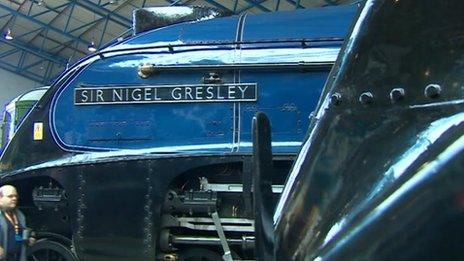'Demeaning' duck absent from Sir Nigel Gresley statue
- Published
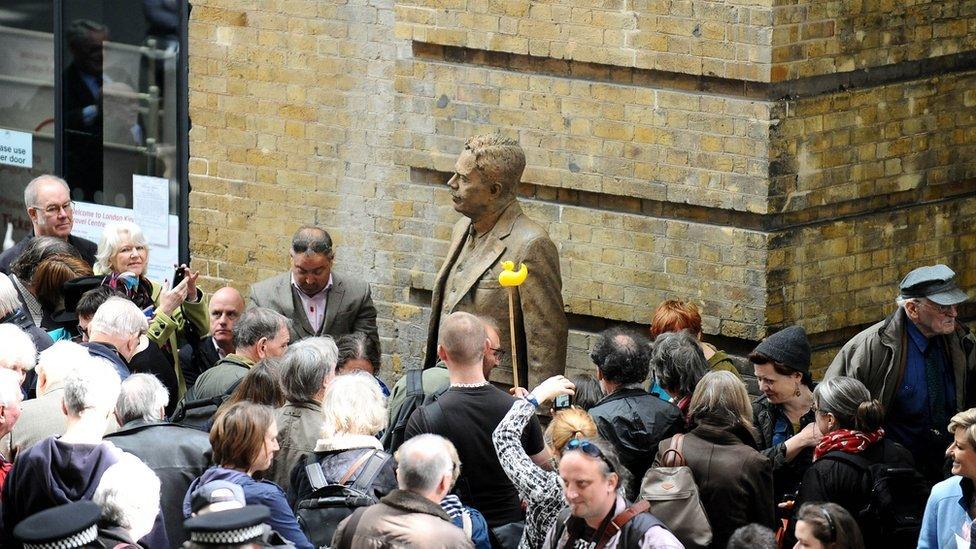
A large crowd gathered to see the Sir Nigel Gresley statue unveiled at King's Cross
A statue of railway engineer Sir Nigel Gresley has been unveiled at King's Cross station - with the notable absence of a duck to keep him company.
A mallard was originally included as Sir Nigel liked breeding water fowl and locomotives he designed, including Mallard, were named after birds.
But the Gresley Society Trust changed the design because two of his grandsons thought the duck was "demeaning".
It has not been reinstated and three trust members resigned.
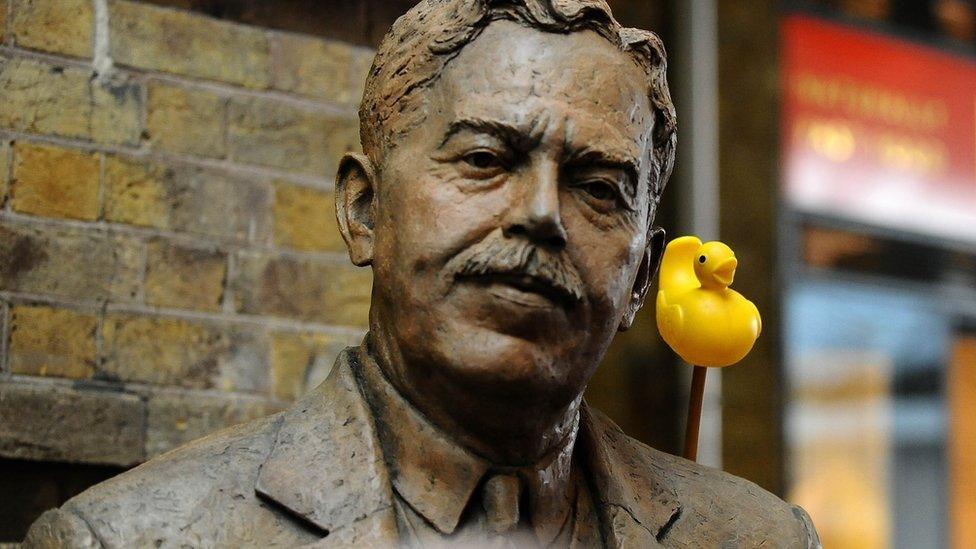
One of the pro-duck lobby took matters into his own hands with a duck on a stick
The row prompted several people to bring rubber ducks to the unveiling in protest at the decision not to include the bird despite a campaign and petition, external.
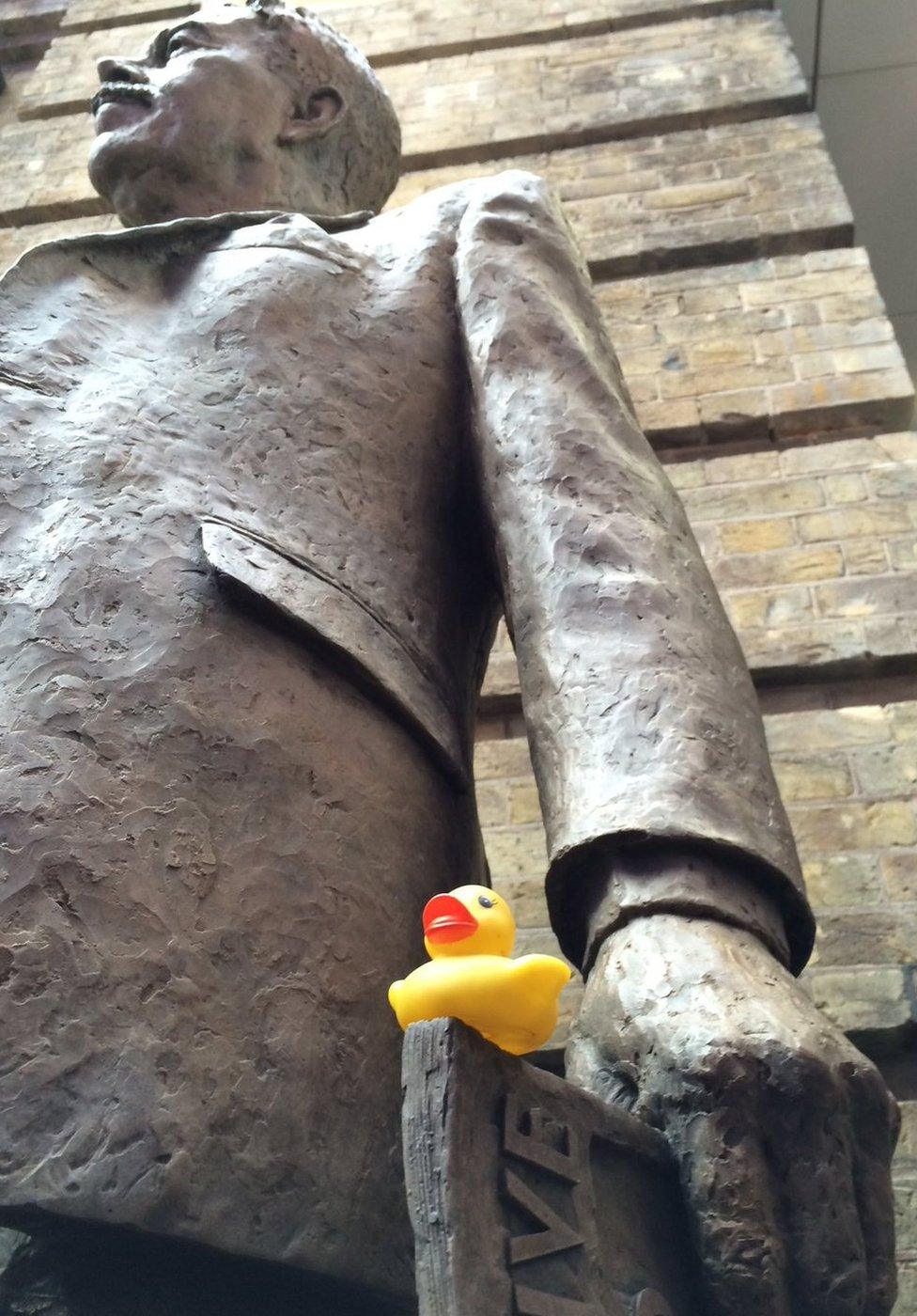
Sir Nigel, who came from a prominent Derbyshire family, was a pioneering engineer in the early 20th Century whose designs are still used on railways today.
Philip Benham, vice-chairman of the Gresley Society Trust, said: "We acknowledge that the duck was quite a clever idea but on reflection we didn't feel it was appropriate.
"If you look at how it would appear your immediate reaction would be one of amusement.
"We felt that it didn't properly portray what this is about, which is a great locomotive and railway engineer."

The pro-duck lobby turned up at the unveiling brandishing rubber ducks
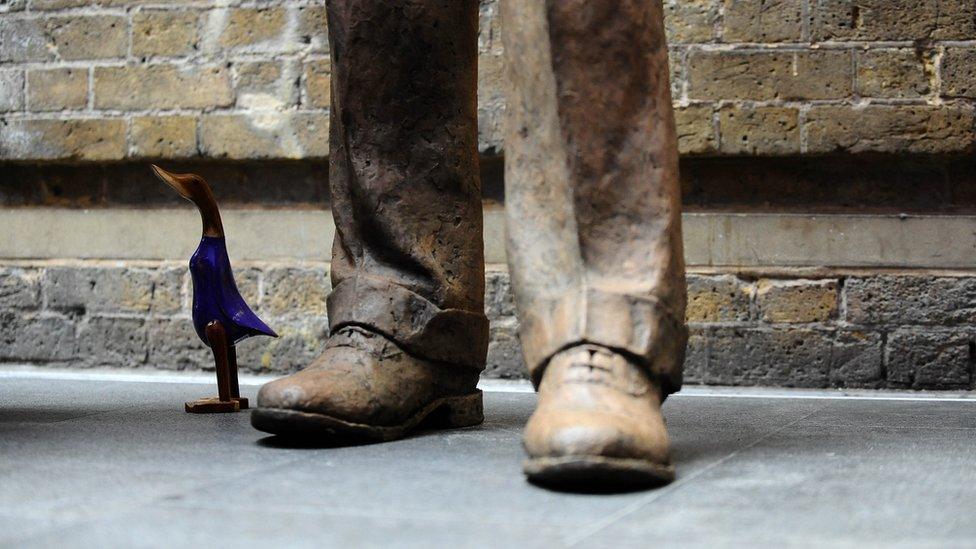
A wooden duck was also placed at Sir Nigel's feet
Network Rail chairman Sir Peter Hendy unveiled the statue with members of Sir Nigel's family.
It was unveiled on the 75th anniversary of Sir Nigel's death, a few yards from where he had his office.

Sir Nigel Gresley
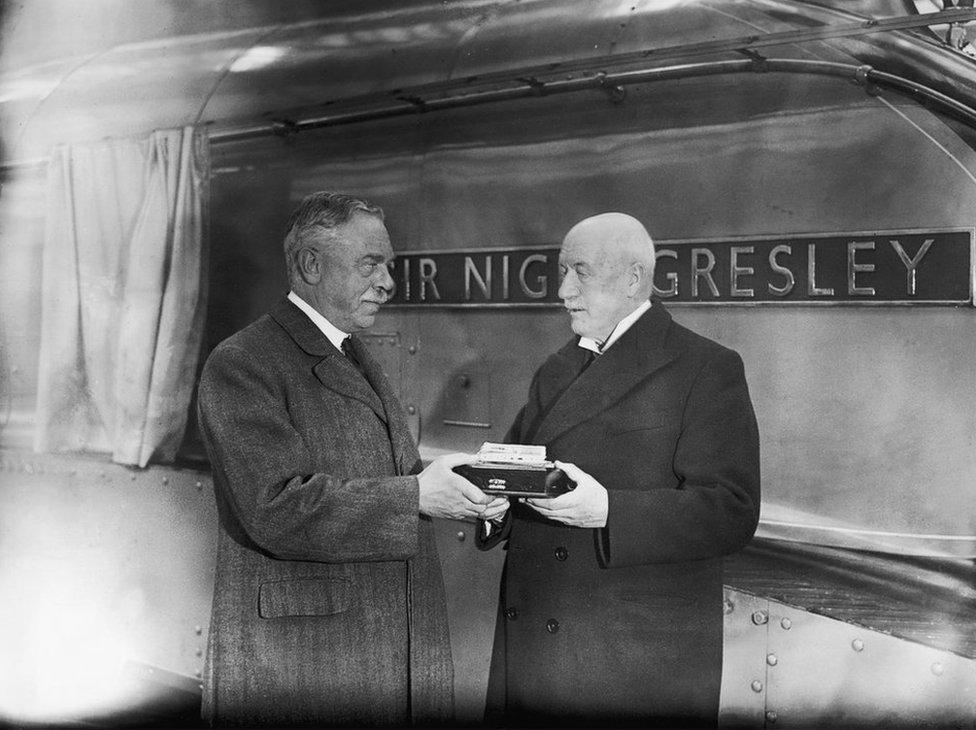
The locomotive Sir Nigel Gresley, built in 1937, was named after its designer
Born on 19 June 1876
The family home was at Netherseal in Derbyshire, where he grew up, and there are two places in the county named after the family - Church Gresley and Castle Gresley
He began as an apprentice after leaving school and rapidly rose through the railway industry
He is most famous for his big Pacific locomotives, including Mallard, which achieved a world speed record for steam of 126mph in 1938
Flying Scotsman, acknowledged as the world's most famous steam engine, was also built to his design
He was knighted for his career achievements in 1936
He died at home unexpectedly on 5 April 1941 while still in office with the London & North Eastern Railway (LNER)

The decision to remove the duck has divided the Gresley Society Trust, and the previous vice-chairman, Andrew Dow, resigned over it.
Nigel Dant, who had the idea of putting the statue at King's Cross, has also resigned.
The society's former publicity officer Dennis Butler, who resigned too, said removing the duck was "madness".
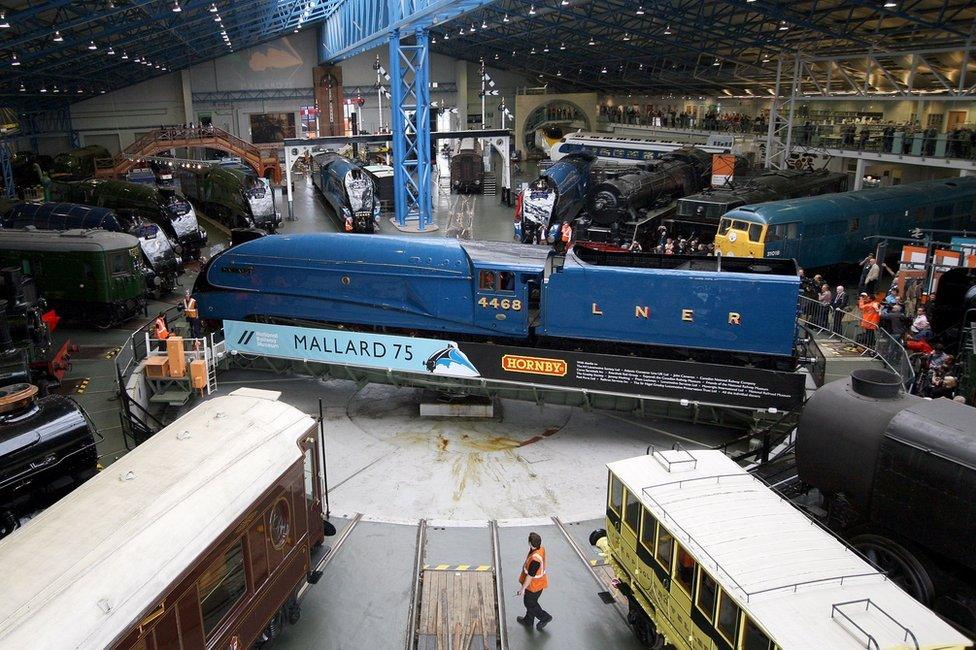
Sir Nigel Gresley designed Mallard - the world's fastest steam locomotive - and named it after the duck
He said the duck would have drawn people to the statue - including those who have not heard of Nigel Gresley, but have perhaps heard of Mallard.
"Sir Nigel Gresley and Mallard are synonymous around the world," said Mr Butler.
"Of course as a Gresley fan I would want there to be a statue [regardless], but it's a bit pointless putting a long-dead guy up against the wall that nobody knows."
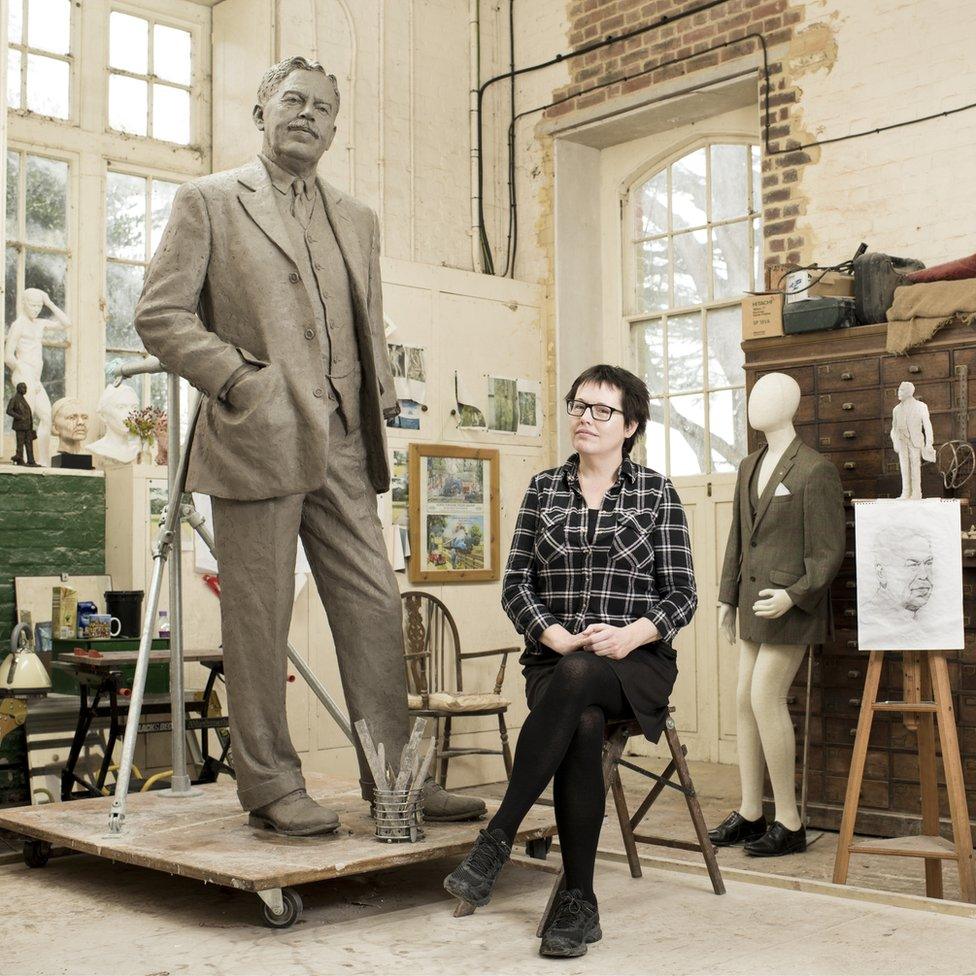
The statue was designed by sculptor Hazel Reeves, who hopes it will "ensure his achievements are rediscovered and celebrated for generations to come"
Kevin Tribbensee, a distant relative of Sir Nigel, travelled down from Derbyshire for the unveiling.
"I quite like the idea of the duck to tell you the truth," he said.
"It might get to fisticuffs you know, between the pro and anti-duck lobby.
"Some people think it demeans him but I don't think so."
- Published8 January 2016
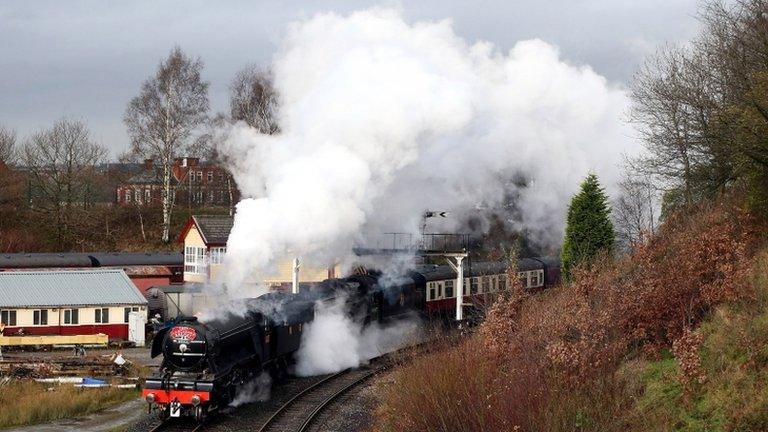
- Published7 February 2016
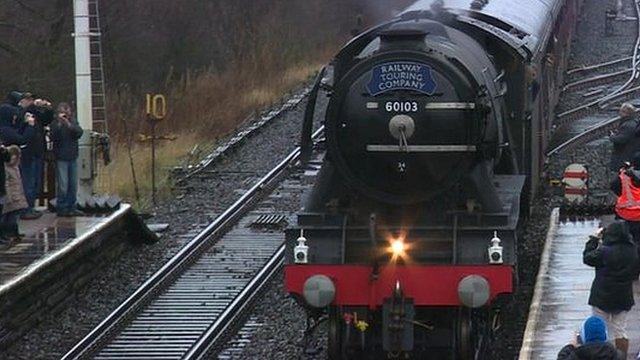
- Published3 March 2014

- Published3 July 2013
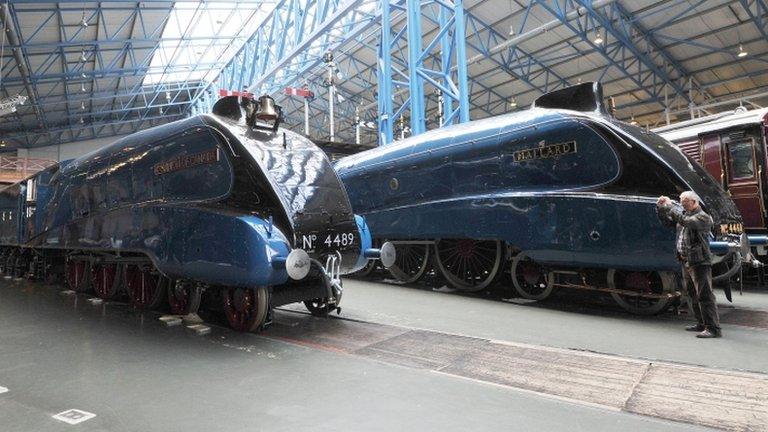
- Published3 July 2013
